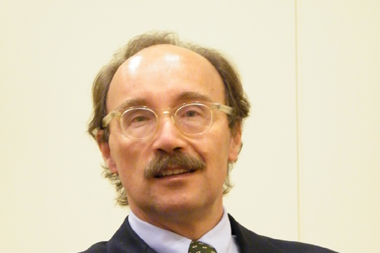Chief risk officers urged to establish an ethical culture that is flexible
Organisations must try to find a balance between appeasing stockholders and supporting them, AJ Gallagher vice-president corporate ethics and sustainability Tom Tropp (pictured) told delegates at an IRM conference today.
Tropp spoke about the chief risk officer’s (CRO) role in building an ethical culture, citing both Milton Friedman’s and Ed Freeman’s stakeholder theory, which describes two extreme ends on an ethical scale along which businesses should measure themselves.
Tropp said: “You have to figure out as a company where your default location on the scale is, but you also have to be flexible. We like to think that our company [AJ Gallagher] is left of centre but sometimes we’re not, and sometimes your companies are and sometimes they are in different places.”
The risks of being at either end of the scale vary, but Tropp urged delegates to find a balance by evaluating the company’s needs.
He said: “If you are an extreme left then you are going to lack effectiveness. A ‘mission shift’ will occur whereby the mission you set upon is not the mission you accomplish because you are trying to make everybody in the room happy, with financial failure most likely.
“At the other end of the spectrum, the risk is loss of public respect as the only thing you are worried about is making money. Companies are losing respect because their sole motivation is to make money … There are lots of human casualties with this type of approach and loss of community support.”
Tropp believes that a CRO should establish the company’s ethical values but maintain the flexibility required to adapt to changing environments.




















No comments yet